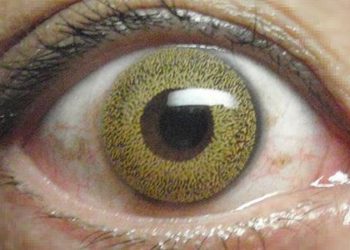Hydroxychloroquine and lopinavir-ritonavir not effective against SARS-CoV-2
1. Hydroxychloroquine and lopinavir-ritonavir did not significantly decrease COVID-19–associated hospitalization or improve other secondary clinical outcomes.
Evidence Rating Level: 1 (Excellent)
Study Rundown: The COVID-19 pandemic, caused by the novel SARS-CoV-2 virus, has led to more than 146 million cases globally and more than 3.1 million deaths as of April 26, 2021. Through tremendous global research efforts, effective treatment for decreasing the duration of hospitalization, morbidity, and mortality continue to be areas of active research. Successful repurposing of existing drugs for outpatient COVID-19 management can further improve clinical outcomes, preventing disease progression and subsequent hospitalization and minimizing strains on limited resources. To study the efficacy of outpatient COVID-19 therapies and prophylaxes, 685 participants at risk for COVID-19 were recruited from 10 participating cities in Brazil and were randomized to either the hydroxychloroquine, lopinavir-ritonavir, or placebo groups at a ratio of 1:1:1. There was no significant difference between the two treatment groups and the placebo group in terms of primary outcomes of the study, which were COVID-associated hospitalization and death. One strength of this study is the ability to identify and rapidly recruit high-risk patients for developing severe COVID-19 in primary care settings. The study also conducted home visits with appropriate personal protective equipment to follow participants thoroughly during different time points of the trial. The limitations of the trial stem from researching amid the pandemic, in which the best clinical outcome is still unclear. It’s conceivable that duration hospitalization is not the most significant outcome, making evaluating the efficacy of treatment and prophylaxis for COVID-19 more ambiguous.
Click to read the study in JAMA
Relevant Reading: Remdesivir for the Treatment of Covid-19 — Preliminary Report
In-Depth [randomized controlled trial]: In this placebo-controlled randomized clinical trial in Brazil, 685 adult participants were recruited. The study found no significant differences among hydroxychloroquine, lopinavir-ritonavir, or control groups in terms of COVID-19–associated hospitalizations, time to hospitalization. The percentage of COVID-19–associated hospitalization, in the hydroxychloroquine, lopinavir-ritonavir, or placebo groups are 3.7%, 5.7%, and 4.8%, respectively, and the median time from randomization to hospitalization in the hydroxychloroquine, lopinavir-ritonavir, or placebo groups are 4.8 (1.4-6.1) days, 3.6 (2.5-4.8) days, and 2.4 (0.8-3.2) days, respectively. There was also no difference in the resolution of symptoms and viral clearance between the treatment groups and control group. Notably, more participants in the treatment groups developed treatment-emergent adverse events: 22.2% in the hydroxychloroquine group, 39.7% in the lopinavir-ritonavir group, and 20.9% in the placebo group. The study did not support hydroxychloroquine and lopinavir-ritonavir gas effective agents for COVID-19 infection.
Image: PD
©2021 2 Minute Medicine, Inc. All rights reserved. No works may be reproduced without expressed written consent from 2 Minute Medicine, Inc. Inquire about licensing here. No article should be construed as medical advice and is not intended as such by the authors or by 2 Minute Medicine, Inc.







